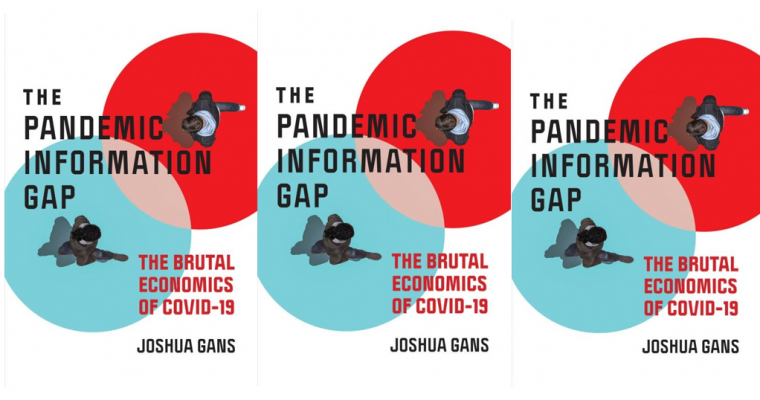This is the eleventh post in a six-week series: Rapid or Rushed? exploring rapid response publishing in covid times.
Read the rest of the series here.
In this post, Helen Kara, editor of three rapid responses, reflects on the Impact blog’s virtual roundtable. Helen outlines key themes discussed: the role of rapid responses to topical and urgent events, the labour and logistics involved in publishing quickly and the role of existing relationships and digital facilities in enabling the faster production of knowledge.
I attended the event ‘How fast is too fast? Rapid response publishing in a pandemic’ – and so did 119 other people. I was interested in this event because I co-edited three rapid response volumes on research methods in a pandemic, for Policy Press, which I have written about on this blog before with my co-editor Su-ming Khoo.
The panel included authors, editors, and publishers. Policy Press were represented on the panel by Victoria Pittman, as were Cambridge University Press in India by Qudsiya Ahmed, and MIT Press through one of its authors, Joshua Gans. Richard Horton, Editor of the Lancet and Polity Press author, was the other panel member, and the panel was ably chaired by Myria Georgiou from LSE. The discussions were wide-ranging, and five themes emerged.
First, rapid response publishing is crucial at times, to respond to topical events, but it is essential not to compromise on quality. Each publisher will decide what this means for them in practice, reviewing everything from peer review systems to cover designs. However, a common concern is ensuring that rapid response is the right format and approach for a work under consideration, because rapid turnaround won’t work for all publishing. If a longer book, or a book with a gentler timescale, would be more suitable, then that format or approach should be used, however much the publisher and/or author might wish it were otherwise.
Second, rapid response publishing increases the burden on everyone working to get books out. Academic publishing is already a very busy and pressurised profession under normal circumstances. The added burden of working from home in lockdown, plus the requirement to work even faster than usual to publish rapidly, can lead to more work being done out-of-hours and during holidays. That may jeopardise people’s mental health, which is no small concern.
Third, rapid response publishing to date has depended on existing relationships between publishers and authors. To publish swiftly work of good quality, publishers chose authors they already knew, who they trusted to write or edit well and to deliver on time.
Fourth, digital facilities are essential for rapid response publishing. Most rapid response books are published in digital form – though this can have disadvantages, such as publications refusing to accept digital review copies. Social media – blogs such as this one, platforms such as Twitter – have long been a form of rapid response publishing in themselves. Joshua Gans mentioned Tomas Pueyo’s article published in March on Medium, The Hammer and the Dance, which has had millions of views and has been very influential. Pueyo is a businessman, not someone who would have engaged with formal academic publishing, so this is an example of how the internet can facilitate rapid response publishing in a more democratic way, by enabling people who are not experts to make really useful contributions.
Fifth, the combined dependency on existing relationships and digital facilities led to a reinforcement of privilege in rapid academic publishing. In the first months of the pandemic, the increased stress publishers were under from the pandemic and lockdown measures meant they didn’t have the extra resources needed to work more inclusively, so they focused on authors and editors who they knew and trusted. And the reliance on digital methods of production excluded almost a billion people who do not have access to electricity, and made inclusion very difficult for billions more who live in parts of the world where electricity supplies are erratic. Moving work – and events such as this one – online has widened inequalities in access to the production and consumption of knowledge, and disproportionately disadvantaged people in the global South.
Ultimately, academic publishing is a living organism within which those involved have to balance rights and responsibilities and meet ethical challenges. This event highlighted that attention to reducing inequalities, and to the welfare of those involved in the publishing process, are of greater importance in rapid response publishing during a crisis, because the associated pressures evidently make it easier to overlook these issues. However, it is also evident that rapid response publishing offers unique opportunities. Joshua Gans’ book Economics in the Age of COVID-19 was published in April and is already in its second edition, while Richard Horton is already working on the second edition of his book The COVID-19 Catastrophe: What’s Gone Wrong and How to Stop It Happening Again which was published in June. Policy Press are now working on some rapid response titles from authors who are new to them. So we see that rapid response publishing, like academic publishing more broadly, is still evolving.
Note: This article gives the views of the authors, and not the position of the LSE Impact Blog, nor of the London School of Economics. Please review our comments policy if you have any concerns on posting a comment below.







